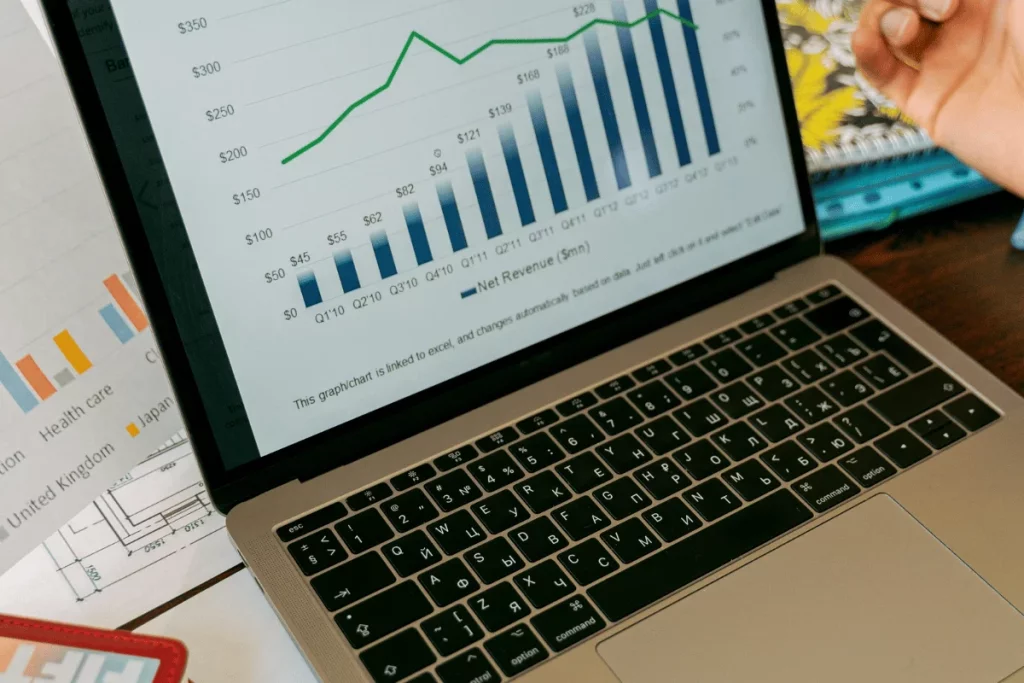Unlike product-based businesses, service businesses can be more challenging to evaluate. How do you value intangible assets such as service quality? How do you factor in changes in industry trends?
In this guide, we discuss how to value a service business accurately and increase its worth.
At Exitwise, we are dedicated to helping you achieve the business exit of your dreams. We'll help you find the best M&A experts to value your business and sell it at the highest price possible.
Consult with our team today to evaluate your business correctly, improve its value, and sell at the most favorable terms.

Depending on the nature and data available, different methods can be used to determine the value of a service-based business.
We'll go over four ideal methods for a service business valuation:
The SDE or seller's discretionary earnings method uses both, internal and market considerations. The SDE is the full financial benefit you derive from the business as the owner-operator, including your salary and other benefits.
The method is ideal for valuing a service business run by the owner or in which the owner actively works, and the company is significantly dependent on them.
The market consideration comes in because you use external industry valuation multiples derived from the prices at which other similar businesses have sold in the past.
Here's a sample SDE valuation assuming your annual SDE is $230,000 and the market-derived multiple is 2.1x:
Business Value = SDE x Multiple
= $230,000 x 2.1 = $483,000
The asset-based valuation approach is intrinsic, considering your business's assets and liabilities as per the formula:
Business Value = Total Assets - Net Liabilities
If your business has assets (such as intellectual property, office equipment, vehicles, or technology) amounting to $550,000 and liabilities amounting to $100,000, the value would be:
Business Value = $550,000 - $100,000 = $450,000
With the EBITDA multiple method, you can see how many times your business is worth its EBITDA. The method has an internal consideration (EBITDA) and an external aspect (market-derived EBITDA multiple).
The EBITDA multiple method is ideal if your service business makes $5M+ in annual revenue. Assuming an EBITDA of $5.5M and a multiple of 3.67x, here's what your business would be worth:
Business Value = EBITDA x Multiple
= $5,500,000 x 3.67 = $20,185,000
If your business has predictable, stable future incomes, use the discounted cash flow method to show better your profitability capacity and ability to generate revenue.
An income-based approach, the DCF method uses the formula below:
DCF = CF₁ ÷ (1 + r)¹ + CF₂ ÷ (1 + r)² + … + CFₙ ÷ (1 + r)ⁿ
Where;
Here's a sample valuation:
DCF = $2,000,500 ÷ (1 + 0.035)^1 + $2,300,500 ÷ (1 + 0.035)^2
= $1,932,850 + $2,147,541 = $4,080,391
Evidently, determining the value of your business can be overwhelming.
But don’t worry.
You can estimate the value using our free online business valuation calculator to obtain a preliminary value of your business's worth based on its revenue or EBITDA.

A service business valuation is much more than just calculations. Here are the steps to an accurate valuation:
Use your historical financial records to determine if you should sell your business based on its profitability, liquidity, or operating efficiency.
Service businesses can be tricky to value as most of their value could be tied to intangible rather than tangible assets.
Check the value and quality of office equipment, real estate, technology, and accounts receivable.
You should also determine the value of intangible assets such as brand reputation, intellectual property, and vendor relationships.
Determine your responsibilities, including long-term and short-term debt, taxes due, and wages payable.
Calculate all the possible financial metrics using the data available. Some key metrics include revenue, expenses, net profit, EBITDA, projected future cash flows, debt-to-equity ratio, and more.
The metrics come in handy when you calculate the value of your business, depending on the valuation methods you use.

You can consider your business’s growth potential, which a new owner can realize through strategic planning and improvement.
For example, is there room to expand your client base by opening new service locations?
Market comparables are an excellent benchmark for valuation methods like discounted cash flow analysis.
You can compare your valuation to the values of other businesses or recent sale prices to determine whether it is accurate.
You'll want a valuation that reflects the prevailing valuation amounts and trends in the market to avoid underselling or outpricing your business.
Consider your market standing in terms of customer base, competition, and the suitability of your business's geographic location.
Are there ways to improve your market position to command a better valuation?
Use your preferred valuation methods to calculate the monetary worth of your business. The best way to value a business is to use different methods to act as benchmarks and checkpoints for each other.
Once done, write a comprehensive and objective business valuation report to show prospective buyers and your M&A team.
Speaking of an M&A team, the right experts can help you determine the best valuation using suitable methods. They can also compile a thorough report and guide you through it to help you understand your business’s value clearly.
At Exitwise, we connect you with top M&A lawyers, finance accountants, investment bankers, and wealth advisors to help you maximize your exit.
Reach out to our team today to recruit and work with the best industry-specific M&A experts for an accurate valuation and optimal exit.

The value of a service business depends on both internal and external factors, such as:

You can improve the value of your service business in various ways:

Business valuations are an art and a science. You'll want to master both sides of the activity by avoiding common mistakes such as:

Here are some common questions to wrap up the discussion:
Yes. The valuation of your service business can vary depending on industry trends.
For example, market volatility can reduce value due to lower demand as investors perceive businesses in that market as risky.
Similarly, reduced revenue and difficulty finding new customers due to increased competition can also lower your business's value.
Hiring a professional appraiser to evaluate your business should happen as soon as you decide.
Working with the right M&A experts is the best decision you can make when selling your business, as they can help you understand its value better and negotiate a favorable sale price.
Some critical financial metrics to consider in a service business valuation include revenue, expenses, gross and net profit, debt-to-equity ratio, cash flow, and customer lifetime value.
Even though valuing a service business can be tricky, you can get it right the first time now that you know the various internal and external considerations and the mistakes to avoid.
As mentioned, hiring the right professionals is the best way to make the valuation easier and more accurate. If you are looking to exit, these professionals can also help you sell faster at an appropriate price.
At Exitwise, we help you hire your dream M&A team to assist you with the valuation and exit. We can connect you with industry-specific M&A attorneys, wealth advisors, investment bankers, and finance accountants.
Chat with us today to find the best M&A experts to value your service business accurately and sell it at the best possible price.
Let Exitwise introduce, hire and manage the best, industry specialized, investment bankers, M&A attorneys, tax accountants and other M&A advisors to help you maximize the sale of your business.

